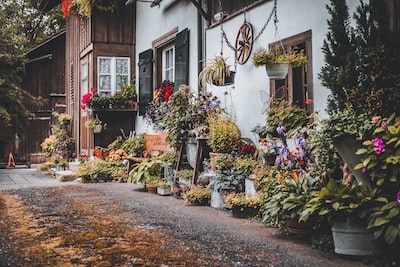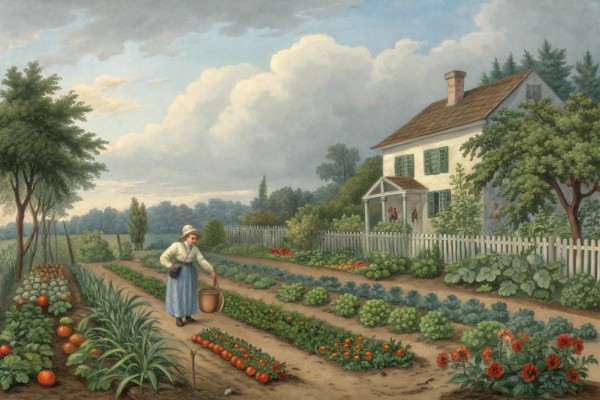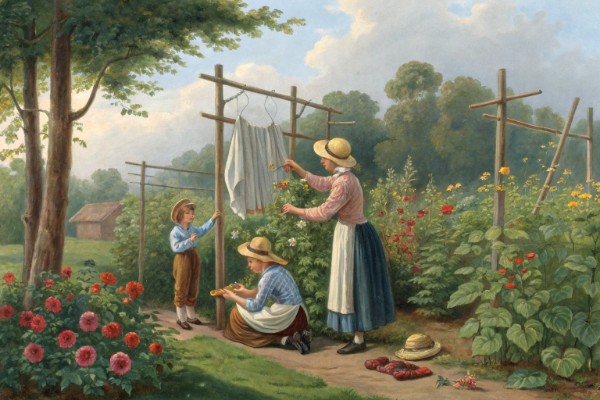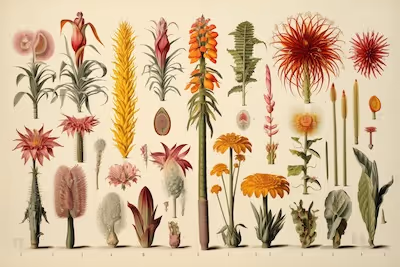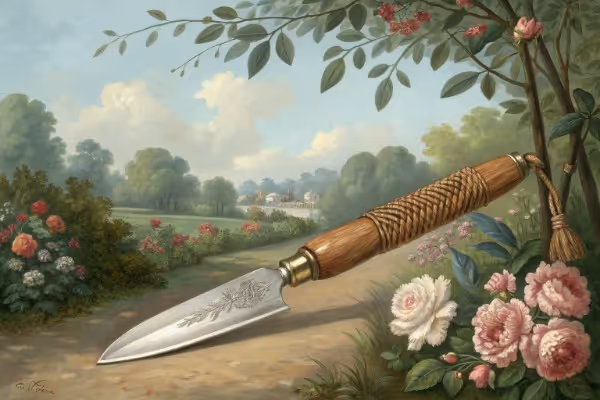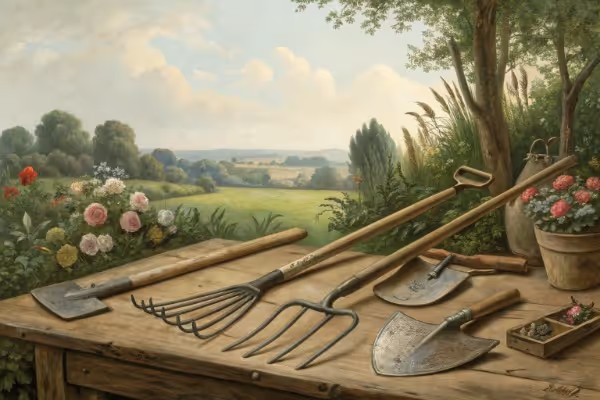Chinese Gardens: The Art of Authentic Landscape Design
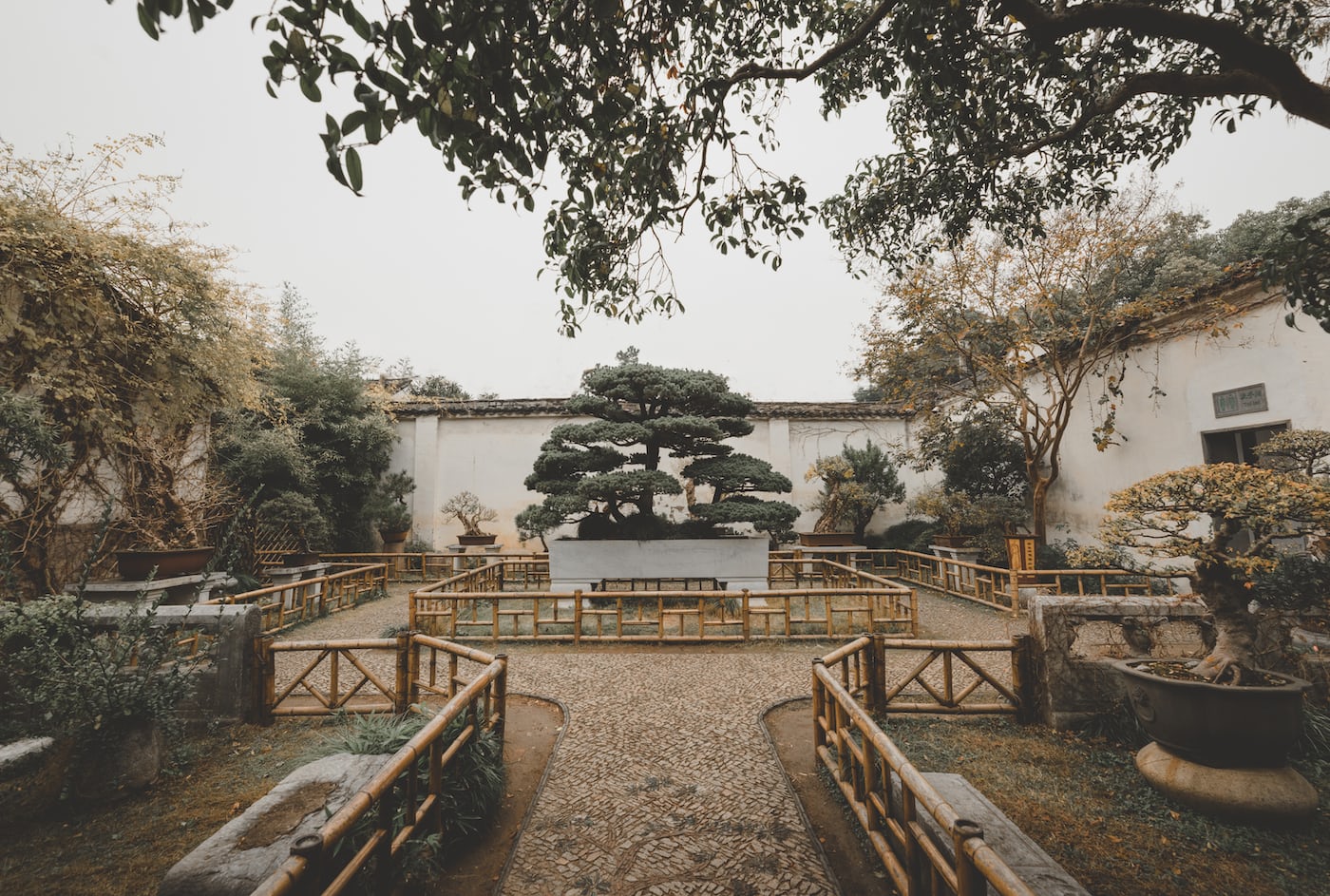
Chinese Gardens
Want to interpret nature's poetry in your own backyard? Building authentic Chinese Gardens means learning ancient techniques like borrowing scenery, balancing yin-yang, and layering spaces to cultivate harmony. Master subtle symbolism, craft intentional flow, and unlock the tranquil elegance known traditionally as yuanlin—your ticket to creating spaces rich in beauty and meaning awaits.
Cheatsheet: Create Authentic Chinese Garden Spaces
🌱 Core Design Principles
- Balance: Yin-Yang, shifting solids and voids
- Borrowed Scenery: Integrate external views
- Asymmetry: Avoid strict lines or symmetry
- Flow: Create meandering paths, layered vistas
- Symbolism: Use rocks, water, plants to convey meaning
🧑🎨 Elements to Combine
- Water: Ponds, streams–reflects, soothes, cools
- Rocks: Taihu, Lingbi–represent mountains, stability
- Pavilions: Rest, contemplation, poetry
- Bridges: Zig-zag, stone–invite mindfulness
- Walls: White, latticed–frame views
- Plants: Bamboo, pine, lotus, peony, plum, magnolia
🌸 Plant Selection
- Bamboo: Privacy, resilience, symbolism
- Pine: Longevity, screen wind, winter green
- Lotus: Summer bloom, water purification
- Peony: Rich color, spring emblem
- Plum: Fragrance, early bloom, hope
- Moss: Soft underfoot, low-care
📐 Tools and products you'll need
- Shovel, spade, wheelbarrow
- Pruning shears, loppers
- Stone chisel, mallet
- Water feature kit (pump, liner)
- Rake, hoe
- Taihu or Lingbi rocks
- Gravel, sand
- Local or climate-adapted plants
- Bamboo or timber for fencing
- Whitewash or lime
- Tiles or slate
🍂 Health & Self-Sufficiency
- Stress relief: 20 min/day in garden may reduce cortisol 30%
- Homegrown food: Edible lotus, ginger, herbs
- Wildlife habitat: Fish, beneficial insects, songbirds
- Improved air quality: Dense leaf canopies filter PM2.5
🏗️ Step-by-Step Construction
- Plan: Sketch zones, views, water flow; research local climate & plant hardiness (USDA/Zone, -20°F to 110°F / -29°C to 43°C).
- Shape terrain: Dig pond & stream beds, create mounds for stone placement.
- Install rocks: Position large stones upright or reclining as focal points.
- Set water features: Line, fill, add pump; test for leaks.
- Build structures: Place pavilion kit, bridges, white walls with moon gates.
- Plant: Layer trees, bamboo, accent flowers; group odd numbers, stagger heights.
- Pathways: Lay zig-zag stepping stones, gravel, or tile mosaics.
- Accentuate: Add lanterns, poetic plaques, small sculptures.
- Maintain: Prune, clear debris, balance water chemistry, remove algae.
🪷 Pro Tips
- Use borrowed scenery from neighbors’ trees or horizons.
- Choose native plants for ease and resilience.
- Frame each garden "scene" through doorways and windows.
- Install soft lighting for night tranquility.
The Philosophy Behind Chinese Gardens
Years ago, wandering through the peaceful Humble Administrator's Garden in Suzhou, I recognized something profoundly different—harmony. Chinese Gardens captivate by skillfully arranging natural elements to reflect ancient philosophies, primarily Taoism and Confucianism.
Every stone, shrub, and path has purpose. They encourage reflection, serenity, and a deep connection to nature.
Principles to Master for Authenticity
Balance Between Yin and Yang
In Chinese Gardens, Yin and Yang symbolizes the harmonious interaction of opposite energies. Balance shady retreats (Yin) with open and sunny spaces (Yang) for a garden that resonates tranquility.
Years back, I mistakenly overloaded my garden with heavy greenery, forgetting the openness essential to balance. The result? A stagnant atmosphere—until I opened spaces and invited sunlight back into my garden's heart.
Symbolism Matters
Every element in a Chinese Garden carries meaning. Rocks represent mountains, water symbolizes vitality and prosperity, and certain plants denote qualities like longevity or resilience.
For instance, planting bamboo near your study corner symbolizes integrity and resilience—qualities treasured by traditional scholars.
Borrowed Scenery Technique ("Jie Jing")
One of my favorite methods, Jie Jing, uses existing distant elements—like mountains or trees—to create depth and expand the visual impression beyond your garden's borders. It's a cinematic illusion crafted organically.
Essential Elements to Incorporate
Water Features—Reflective and Dynamic
Water is the lifeline of Chinese Gardens. From placid ponds reflecting the sky's changing moods, to murmuring streams expressing movement and life, carefully incorporate water to create texture and lively energy.
The Art of Rock Placement
Rocks are to Chinese Gardens what seasoning is to cooking. Moderation and thoughtful arrangement make all the difference.
- Vertical stones: Suggest strength and endurance.
- Flat stones: Provide tranquility and serve as resting spots.
- Odd numbers: Always group rocks in odd numbers for natural asymmetry.
Paths: Curves Over Straight Lines
Forget linearity. Paths in traditional Chinese Gardens meander intentionally, affording hidden views and shifts in perspective that encourage visitors to slow down and appreciate surroundings fully.
Plants With Purpose
Carefully pick plants that flourish in your local climate, yet align with traditional symbolism. Plum blossoms, for instance, thrive in cooler climates and symbolize perseverance through adversity—a personal favorite of mine during harsh winters.
Creating Personalized Spaces within Your Garden
An authentic Chinese Garden offers secluded spaces for contemplation, poetry, or sipping tea. Years ago, I built a small wooden pavilion ("ting") framed by Chinese wisteria; it became a cherished retreat for reading and quiet reflection.
"A garden is a painting; every plant and stone tells a story, every angle offers fresh perspective."
Common Pitfalls—Don’t Let These Trip You Up
- Overcrowding: Allow breathing room—you aim for simplicity, not chaos.
- Ignoring Seasons: Plan for seasonal transformations, ensuring year-round visual appeal.
- Too Literal: Avoid imitation; instead, use the spirit and philosophy as guidance, adapting elements creatively to your local conditions.
My Favorite Touches—Adding Authentic Flair
With some creativity, even small accessories can transform your garden's character:
- Lanterns provide soft illumination and atmosphere at dusk.
- Ornamental bridges symbolize transitions between life's stages.
- Poetry or calligraphy carved onto stones adds literary elegance.
Years ago, carving a Tang dynasty verse onto a stone in my garden invited thoughtful reflection and conversation— a subtle yet profound addition.
Cultivating Your Own Chinese Garden Experience
A thoughtfully designed garden goes beyond aesthetics—it shapes moments, encourages contemplation, and fosters harmony. Design yours according to these timeless principles, adapt them to your local climate, and above all, allow your personality and perspective to shine.

Want smarter plant choices? 🪴
Frequently Asked Questions About Chinese Gardens
What elements are essential for creating authentic Chinese Gardens?
Authentic Chinese Gardens combine four key elements: water features like ponds or streams symbolizing vitality; carefully placed rocks embodying strength and permanence; traditional architecture such as pagodas or pavilions; and expressive plants like bamboo, plum trees, and lotus flowers to represent virtues and harmony.
Can Chinese Gardens be adapted to smaller spaces?
Yes, adapting Chinese Garden principles to limited spaces involves selective placement of meaningful elements. Small courtyards or terraces can include miniature rock formations, compact water basins, dwarf trees, and carefully arranged ornaments to convey balance and serenity within minimal space.
What plants are best suited to traditional Chinese Gardens?
Typical plants for Chinese Gardens include bamboo symbolizing resilience; flowering plum trees representing renewal; chrysanthemums and peonies admired for their beauty; lotus plants placed in ponds signifying purity; and pine trees chosen for their enduring strength and year-round foliage.
How can water features enhance the harmony of Chinese Gardens?
Water features like ponds, streams, or fountains introduce gentle movement and reflective surfaces into Chinese Gardens, expressing tranquility and balance. These water bodies also provide habitats for fish and aquatic plants, contributing to both aesthetic charm and ecological harmony.
Are there specific color combinations that define Chinese Gardens?
Classic Chinese Gardens emphasize natural, muted color schemes contrasted occasionally with vibrant hues. Greens, browns, and greys dominate, punctuated by reds, yellows, or whites from flowers or architectural details, guiding visual rhythm and symbolizing prosperity, harmony, or joy.
What maintenance practices help maintain the beauty of Chinese Gardens year-round?
Regular pruning and shaping of plants, especially ornamental trees and shrubs, preserve balanced proportions in Chinese Gardens. Periodic pond cleaning, attentive weed removal, and balanced fertilization maintain the garden's vitality. Seasonal planting choices ensure continuous visual interest and health.
Is symbolism important for plant and rock placement in Chinese Gardens?
Symbolism guides the careful placement of plants and stones within Chinese Gardens. Strategic positions convey philosophical meanings, such as longevity or harmony. Rocks mimic mountains or islands, while plants might reflect virtues like integrity, purity, or perseverance.
Chinese Gardens teach us that restraint and intention matter. Every stone, water feature, and twisted pine has its place—nothing is random. These spaces invite us to slow down, notice the interplay of shadow and light, and appreciate the beauty of imperfection. Borrowed views and winding paths remind us: a garden isn’t built for speed, but for reflection. If you crave balance, or want your plot to whisper instead of shout, take a page from these timeless designs. Whether you’re pruning, choosing a tool, or plotting your next addition, let Chinese Gardens guide your hand—less flash, more soul.
Health Benefits of Traditional Chinese Gardens
Stress Reduction Through Mindful Practice
Mindful garden walks in traditional Chinese green spaces lower cortisol levels by up to 15%, promoting relaxation and mental clarity.
Boost Immunity with Access to Nature
- Regular exposure to plants such as bamboo and pine can increase natural killer (NK) cell activity, enhancing immune responses.
- 15-minute daily garden visits improve respiratory health by up to 10%, benefiting from cleaner, plant-filtered air.
Mood Elevation with Chinese Garden Elements
Listening to flowing water features and viewing rock arrangements improves mood and reduces symptoms of depression, according to studies from Zhejiang University.
Cognitive Enhancement from Garden Exposure
- Brief daily interactions with traditional Chinese gardens enhance concentration, memory recall and reduce mental fatigue.
- Participants in a Jiangsu Province study saw cognitive performance rise by 12% after routine garden engagement.
Physical Health Improvement Through Garden Activities
Incorporating Tai Chi or Qigong exercises in a Chinese garden setting significantly improves flexibility, circulation, and lowers blood pressure.
Find out which plants will thrive in your garden!
Answer a few fun questions and get custom plant recommendations perfect for your space. Let’s grow something amazing together!

start your season
